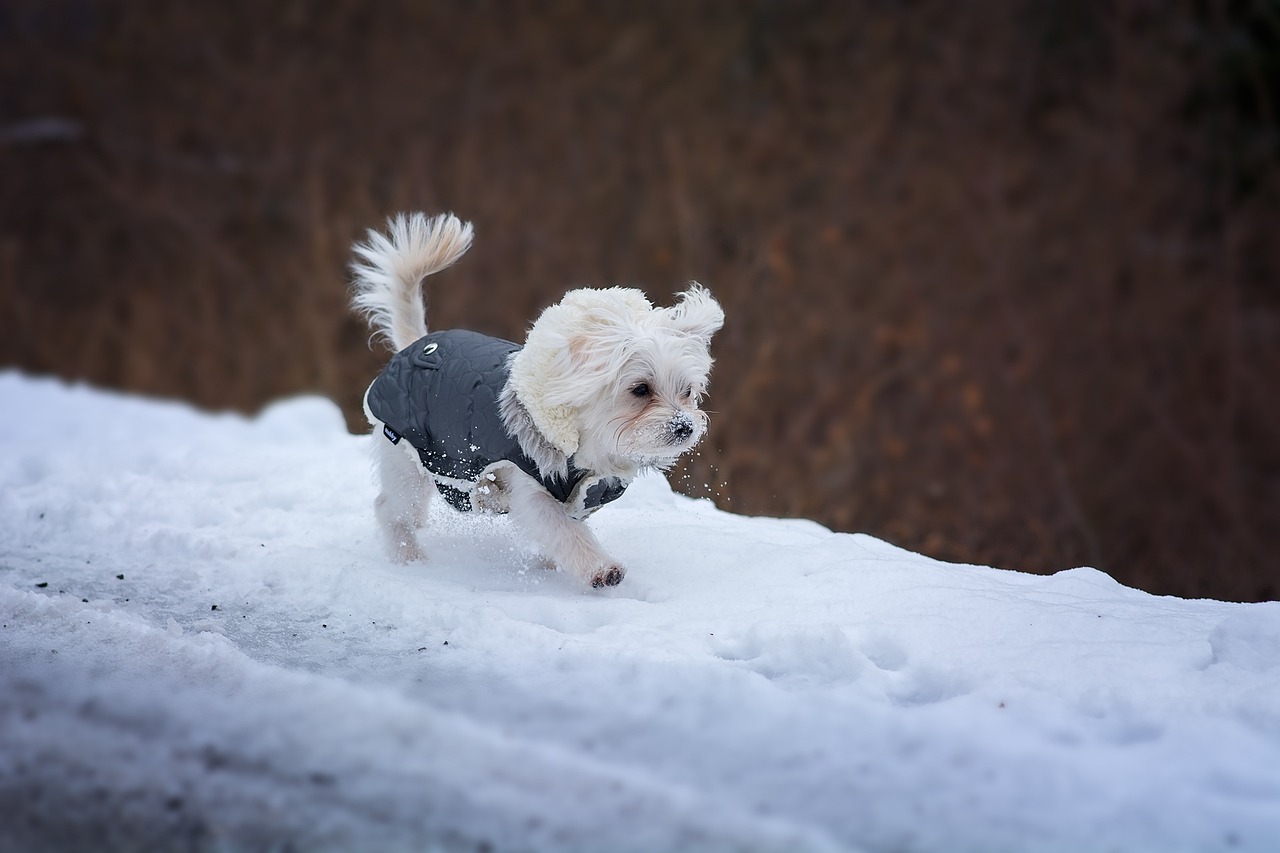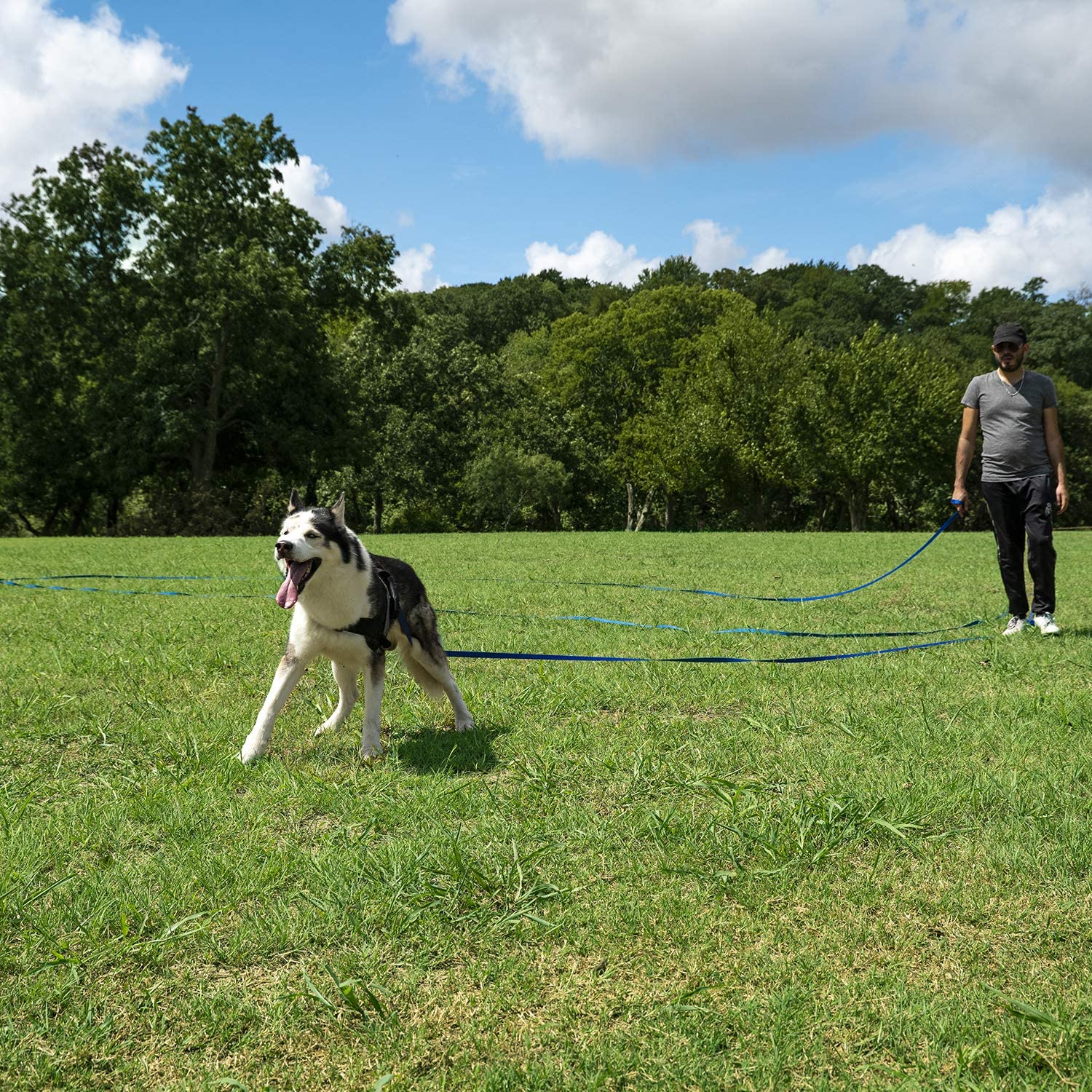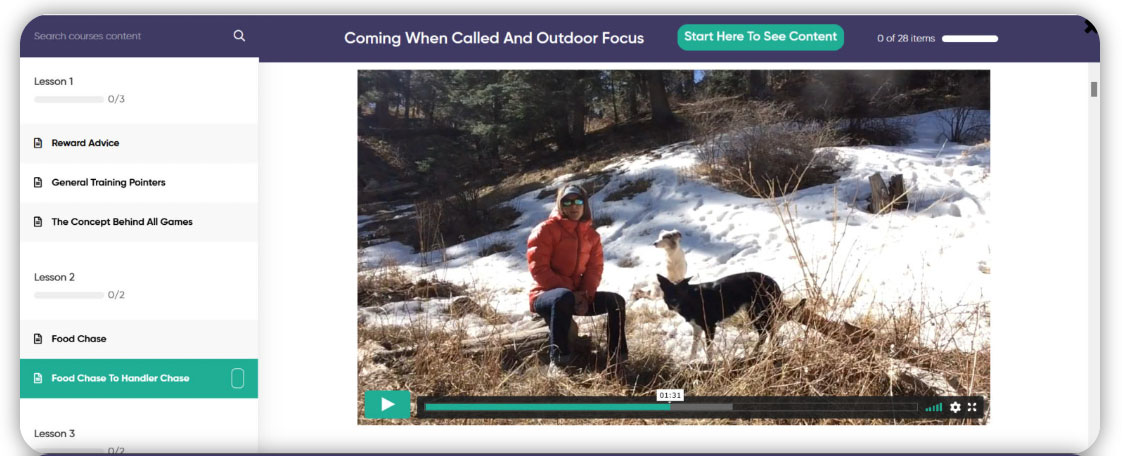
Training your Maltese to come when called is an essential aspect of responsible pet ownership. Not only does it ensure your dog’s safety, but it also strengthens your bond with your furry companion. However, teaching your Maltese to come when called requires patience, consistency, and positive reinforcement.
In this article, we will explore some effective techniques that can help you train your Maltese to come when called, including establishing a routine, using treats, and practicing in a controlled environment. With time and dedication, you can teach your Maltese to come when called and enjoy a more fulfilling relationship with your furry friend.
Note: For a complete training, we highly recommend this SpiritDog Online Training Course “Coming When Called”.
1. Start with a Strong Foundation
Before you begin training your maltese to come when called, it’s crucial to establish a strong bond with your pet. Spend time playing with your dog, engaging in activities they enjoy, and providing positive reinforcement through praise and treats. Building trust and a strong connection with your maltese will make them more likely to respond positively to your commands.
2. Choose a Distinct Command Word
Select a specific word or phrase for the recall command, such as “come” or “here.” Ensure that the command is distinct from other commands you use and that all family members use the same word consistently. Consistency is critical to avoid confusing your maltese and ensuring that they understand what you expect from them.
3. Begin Training Your Maltese in a Controlled Environment
Start training your maltese to come when called in a controlled, distraction-free environment like your home or a fenced yard. In the early stages of training, it’s essential to minimize distractions to help your dog focus on learning the new command. As your dog becomes more reliable in responding to the recall command, gradually introduce distractions and practice in various environments.
4. Use Positive Reinforcement with Your Maltese
When training your maltese to come when called, always use positive reinforcement techniques. Reward your pup with praise, treats, or playtime when they respond to your recall command. This will help create a positive association with the command and motivate your dog to respond consistently. Remember to be patient and consistent in your training, as it may take time for your dog to master the recall command.
If you’re using treats, these are currently the most popular training treats on Amazon.
5. Gradually Increase Distance and Distractions
As your maltese becomes more reliable in responding to the recall command in a controlled environment, begin to increase the distance between you and your dog during training sessions. Practice calling your dog from various distances and gradually introduce distractions, such as other dogs, people, or toys. This will help your dog learn to respond to the command even in challenging situations.
Related: Looking for the fastest way to train your maltese to come when called? Try this video course.
6. Make Yourself Interesting and Rewarding to Your Maltese
To encourage your maltese to come when called, make yourself more appealing and rewarding to your dog. Use an enthusiastic, high-pitched voice when calling your dog, and reward them with a treat or praise when they respond. You can also try running away from your dog when calling them, as this can entice your dog to chase after you and respond to the recall command.
7. Never Punish Your Maltese for Coming When Called
It’s essential to avoid punishing your maltese if they do not immediately respond to the recall command or if they come to you slowly. Punishing your dog can create a negative association with the command and make them less likely to respond in the future. Instead, be patient and continue to practice and reinforce the command using positive reinforcement techniques.
8. Practice the Recall Command Regularly with Your Maltese
Consistent practice is crucial for training your maltese to come when called. Incorporate recall training into your dog’s daily routine, and practice the command in various environments and situations. This will help reinforce the behavior and make it more reliable over time.
9. Use a Long Training Leash on Your Maltese
When transitioning from a controlled environment to a more open space, consider using a long training leash to maintain control over your maltese while they learn to respond to the recall command. This will help you avoid losing control of your dog and provide a safety measure as you gradually increase the distance and distractions during training sessions.
This is the most popular long training leash on Amazon.
10. Be Patient and Persistent with Your Maltese
Training your maltese to come when called takes time, patience, and persistence. Some dogs may learn the command quickly, while others may require more time and consistent practice. Be patient with your dog and maintain a positive attitude during training sessions. Remember that every dog is unique, and the key to success is consistent practice and positive reinforcement.
11. Use a Professional Online Maltese Training Course
While this article provides many helpful tips for training your maltese, you can increase your chances of success by enlisting the help of a professional online dog trainer. We love the SpiritDog online courses, since its includes unlimited questions with a real dog trainer.
You can check out their Teach Your Maltese to Come Online Course Here
In conclusion, training your Maltese to come when called can seem daunting at first, but with persistence and positive reinforcement, it can be achieved. Remember to establish a routine, use treats, and practice in a controlled environment to reinforce the behavior. Be patient and consistent, and avoid punishing your Maltese if they do not come when called. Instead, focus on rewarding them when they do come to you. By following these tips, you can strengthen your bond with your furry companion and keep them safe in potentially dangerous situations. With time and effort, your Maltese will become a well-trained and obedient pet.
More Frequently Asked Questions For Training Your Maltese
Training a Maltese can be a challenging but rewarding experience. As with any pet, there will be questions that arise during the training process. Here are the answers to three of the most frequently asked questions when it comes to training your Maltese:
1. How can I stop my Maltese from barking excessively?
Maltese dogs are known for their tendency to bark excessively. This can be a problem, especially if you live in an apartment or have close neighbors. The key to stopping excessive barking is to identify the root cause of the behavior. Maltese may bark because they are bored, anxious, or seeking attention.
One effective strategy to curb excessive barking is to provide your Maltese with plenty of exercise and mental stimulation. This can include taking them on walks, playing with them, or giving them puzzle toys to solve. If your Maltese is barking for attention, avoid rewarding the behavior by giving them attention when they bark. Instead, wait until they are quiet to give them attention and praise.
You can also teach your Maltese a “quiet” command by rewarding them when they stop barking on command. This can help them learn to control their barking behavior and respond to your commands.
2. How can I train my Maltese to stop biting?
Biting is a common issue for many puppies, including Maltese. It is important to address this behavior early on to prevent it from becoming a habit. One effective strategy is to redirect your Maltese’s biting behavior by providing them with a chew toy or bone to chew on instead of your fingers or toes.
If your Maltese bites too hard, you can yelp loudly to startle them and let them know that their behavior is unacceptable. You can also redirect their attention to a toy or treat as a positive reinforcement. Consistency is key in training your Maltese to stop biting.
It is also important to socialize your Maltese with other dogs and people to teach them appropriate behavior. A well-socialized Maltese is less likely to exhibit aggressive or biting behavior.
3. How can I teach my Maltese to walk on a leash?
Walking on a leash can be a challenge for many Maltese dogs. To teach your Maltese to walk on a leash, start by getting them used to wearing a collar or harness. Allow them to wear the collar or harness for short periods while indoors so they can get used to the sensation.
Once your Maltese is comfortable wearing a collar or harness, you can start leash training by allowing them to drag the leash around the house under supervision. This will help them get used to the sensation of the leash without feeling restricted.
When you start outdoor leash training, begin in a quiet area with minimal distractions. Encourage your Maltese to follow you with treats or toys and reward them when they walk on the leash without pulling. It is important to remain patient and consistent in your training, as it may take some time for your Maltese to learn to walk calmly on a leash.
In conclusion, training your Maltese requires patience, consistency, and positive reinforcement. Addressing common issues such as excessive barking, biting, and leash training can be achieved through proper training techniques and socialization. Remember to reward your Maltese for positive behavior and avoid punishment, as this can harm the bond between you and your furry companion.
4. What’s the best online course for teaching a maltese to come when called? At iHeartDogs, we recommend the SpiritDog online course “Coming When Called.” The course includes unlimited questions with a real dog trainer.
iHeartDogs is reader supported. Our articles contain affiliate links where we are paid a small commission for linking to a product at no additional cost to the reader.



 Toledo, United States.
Toledo, United States.